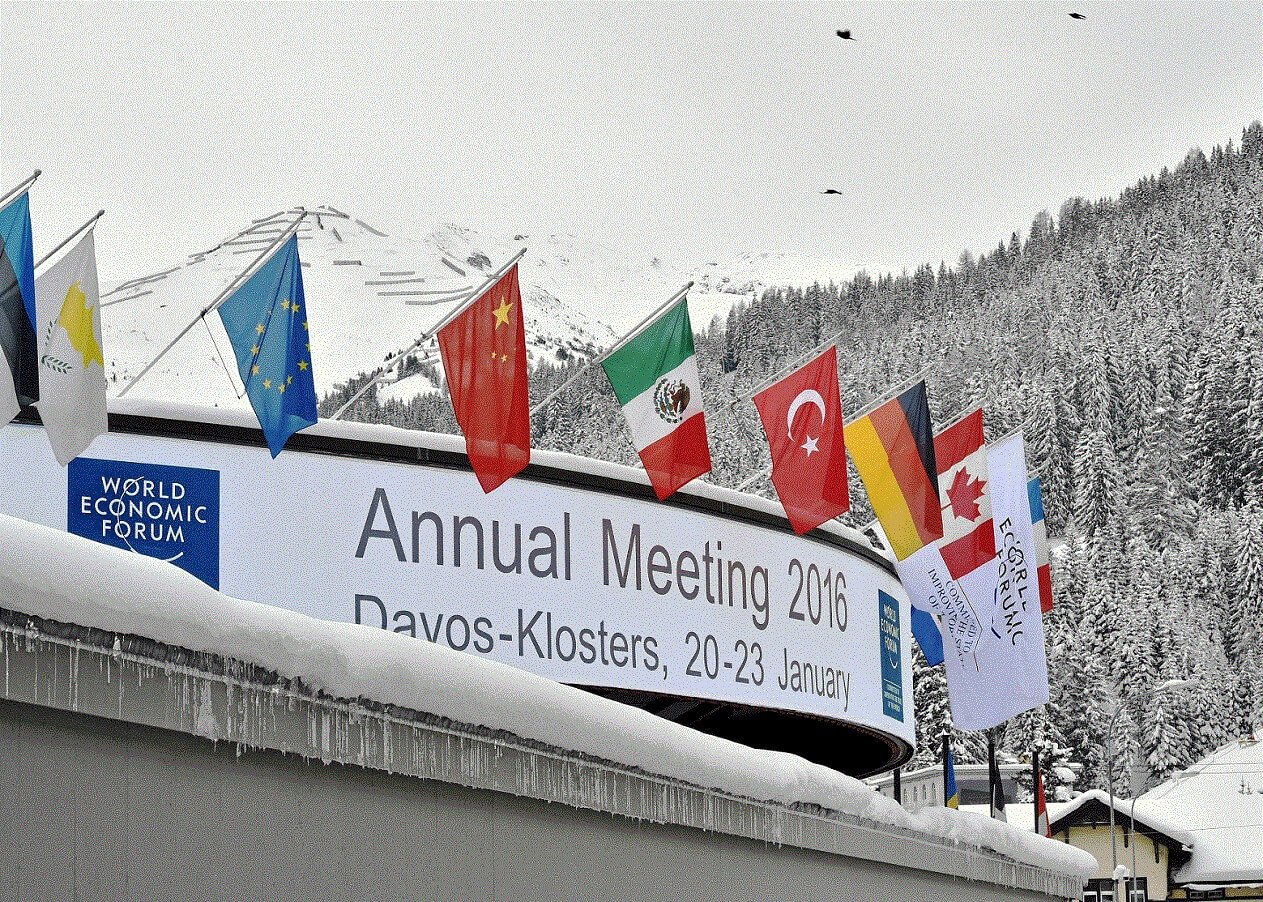
Luxusreisetrends Prognosen für 2025
Luxusreisetrends Prognosen für 2025 zeigen individuelle VIP-Transportlösungen, nachhaltige Fahrzeuge und maßgeschneiderten Komfort für exklusive Reiseerlebnisse.

Every year, the quaint snowy landscape of Davos, Switzerland, becomes the focal point of global attention, hosting the creme de la creme of the world’s power brokers. The Davos World Economic Forum, an elite economic summit, witnesses a confluence of ideas, influencing the direction of global policy and economic development. Through this guide, I intend to shed light on the Davos 2023 conference, a pivotal Swiss economic event renowned for attracting a tapestry of global leadership figures.
As a journalist immersed in the intricacies of top-tier economic conferences, I’ll navigate you through the essence and magnitude of this global leadership conference. The Davos Forum is a beacon of international dialogue, where pressing issues take centre stage and collaborative solutions emerge. Its gravitational pull summons state heads, industry tycoons, and intellectuals to engage and shape the future together. Join me as we explore the significance and the transformative experience of attending such a revered summit.
The Davos Forum, officially known as the World Economic Forum (WEF), is globally recognized for its prestigious annual gathering in the Swiss Alps. More than just a meeting of minds, it serves as a critical platform for shaping global, regional, and industry agendas. Leaders from politics, business, academia, civil society, media, and culture converge in Davos to exchange ideas, form strategic alliances, and explore solutions to some of the world’s most urgent challenges.
While the forum is well-known for discussing the global economic outlook and fostering international cooperation, it has increasingly become a driving force for promoting sustainable development, environmental responsibility, and inclusive growth. Topics such as climate change, technological transformation, global health, and social equity are central to its agenda. The WEF’s ability to gather decision-makers and thought leaders under one roof allows for meaningful dialogue that can influence policy, inspire innovation, and accelerate progress toward a more resilient and equitable future.
With its unique setting in Davos, Switzerland—a symbol of neutrality, stability, and discretion—the forum also offers a secure environment for high-level diplomacy and behind-the-scenes negotiations. In a world facing rapid change and uncertainty, the World Economic Forum continues to play a vital role in guiding the direction of global collaboration and sustainable development.
One of the core objectives of the World Economic Forum (WEF) is to analyze and anticipate shifts in the global economic landscape. By bringing together top economists, world leaders, industry giants, and influential thinkers, the forum creates a dynamic space for high-level dialogue and strategic foresight. It serves as an incubator for ideas and policies that influence global markets, financial systems, and trade dynamics.
Participants engage in discussions that explore emerging economic trends, risks, and opportunities—ranging from inflation and monetary policy to digital currencies, labor market evolution, and supply chain resilience. The WEF’s unique ability to unite public and private sectors fosters collaboration that often leads to concrete initiatives and long-term partnerships.
Through in-depth panels, closed-door sessions, and real-time data sharing, the forum plays a critical role in shaping the economic strategies of nations and corporations alike. Its forward-looking approach helps decision-makers navigate uncertainty and adapt to the complex challenges of a rapidly evolving global economy.
The World Economic Forum is widely respected for its role in fostering cross-border collaboration and global dialogue. It serves as a neutral and trusted platform where nations, corporations, and international organizations can come together to build strategic partnerships. In an increasingly interconnected world, such cooperation is essential—especially when addressing complex, transnational challenges like climate change, pandemics, geopolitical tensions, and economic inequality.
The forum actively encourages the formation of alliances that transcend political boundaries and sectoral divides, enabling collaborative action on a global scale. This spirit of partnership is not just symbolic—it often leads to tangible outcomes such as joint initiatives, public-private coalitions, and breakthrough innovations aimed at tackling shared problems.
By promoting inclusive dialogue and mutual understanding, the WEF helps pave the way for more resilient economies, stable societies, and sustainable development. In doing so, it reinforces the idea that no country or organization can face the future alone—and that progress depends on working together across borders, cultures, and interests.
The commitment of the Davos Forum to sustainable development is unequivocal. It actively promotes the United Nations› Sustainable Development Goals (SDGs), striving to achieve a balance between economic growth and environmental sustainability. Leaders at the forum are encouraged to consider ecological impacts in their decision-making processes, pushing for innovations that offer sustainable solutions to global issues.
Through these diverse focus areas, the Davos Forum steadfastly upholds its mission to improve the state of the world by fostering a collaborative atmosphere where solutions to global challenges are actively pursued and shared. The ongoing dialogue and actions stimulated by this forum play an essential role in driving forward policies and initiatives that encapsulate the spirit of international cooperation and sustainable development.
Since its inception in 1971 by the economist Klaus Schwab, the Davos Forum has marked significant milestones in WEF history, evolving beyond its European managerial roots to a pivotal platform on the global stage. This journey from a modest gathering to a major economic summit has not only shaped the trajectory of international economic discussions but also highlighted the essential roles of collaboration and vision in global governance.
The initial aim, crafted by Klaus Schwab, was to foster better management practices in European firms. However, the scope quickly broadened to include global economic and social issues. This shift transformed the gathering, highlighting the importance of multi-faceted discussions in understanding and directing the economic summit evolution worldwide.
The evolution of the Davos Forum into a key player in global economic discussions exemplifies a dynamic environment where world leaders, business magnates, and intellectuals converge to shape the global economic landscape. This transformative journey underscores the adaptive nature of the forum, making it a cornerstone of global economic discourse and a reflective mirror of the broader economic summit evolution.
One of the core functions of the Davos Forum is not just about hosting a gathering but ensuring that the outcomes influence global practices. The process of Davos Forum participation involves numerous stakeholders, including industry leaders, government officials, and thought leaders, who collaborate to create actionable solutions that resonate worldwide. I’ve compiled insights into how the knowledge, ideas, and initiatives are transferred from the conference rooms of Davos to real-world applications.
Understanding the mechanism behind accessing WEF outputs can be compared to understanding a well-oiled machine. Each part plays a critical role in ensuring that the discussions and decisions made during the Davos economic conference do not just stay within the conference walls but reach the desks of policymakers and strategies of businesses across the globe.
| Aspect | Description | Impact |
|---|---|---|
| Knowledge Sharing | Summaries and insights disseminated through reports and online platforms. | Enhances global knowledge and prompts international cooperation on pressing issues. |
| Policy Development | Initiatives discussed at the forum are often developed into policies by participating nations and organizations. | Leads to the adoption of innovative and unified approaches to solving economic and social challenges. |
| Cultural Exchange | Brings together diverse perspectives which enrich the multicultural dialogue and understanding. | Promotes greater cultural integration and empathy across borders, potentially reducing geopolitical tensions. |
The knowledge and initiatives are not only transferred via official channels but also through the countless informal networks and personal commitments made during the forum. This ensures that the sphere of influence of the Davos economic conference is both broad and deeply penetrating.
The annual Davos Forum, held in Switzerland, consistently acts as a pivotal platform for shaping international guidelines and policies. With a unique convergence of global leaders, industry experts, and activists, the forum facilitates crucial discussions that drive policy development, trade policy influence, environmental agendas, and technological advancements.
At the Davos Forum, the formulation and refinement of trade agreements take center stage. These high-level meetings allow for the negotiation of terms that influence global trade policy. Economists, trade ministers, and international delegates collaborate to sculpt policies that not only benefit participating countries but also ensure fair trade practices worldwide.
Environmental sustainability is another cornerstone topic consistently addressed at the forum. Here, world leaders agree on actionable environmental agendas that target global warming, resource management, and green technology initiatives. These discussions often result in significant commitments to reducing carbon footprints and enhancing sustainable practices across continents.
Finally, the Davos Forum serves as an incubator for technological innovation. By gathering some of the brightest minds in technology, finance, and academia, the forum sparks conversations that lead to technological advancements. These gatherings help in brainstorming new ideas, which often accelerate the development and deployment of technology solutions in various sectors including healthcare, education, and cybersecurity.
In exploring the principal topics shaping our global discourse, recent Davos forums have been showcasing pivotal themes aligned with our current technological and socio-economic transitions. The focus on the Fourth Industrial Revolution has been particularly prominent, pushing the boundaries of how we understand and interact with new technologies across different sectors of the global economy.
Each year, the World Economic Forum (WEF) strategically addresses ongoing global challenges, integrating them into the Davos agendas to harness collective insights from global leadership discussions. These discussions are not only rich in diverse perspectives but are also aimed at generating actionable strategies to tackle pressing issues.
The recent forums have also prioritized themes of Globalization 4.0, a concept that explores the integration of digital economies into the larger global marketplace. A critical component of these discussions revolves around the digitalization of economic and social systems, influencing how policies are shaped across nations.
| Year | WEF Annual Theme |
|---|---|
| 2021 | The Great Reset |
| 2022 | Globalization 4.0 |
| 2023 | Stakeholder Capitalism |
Incorporating these WEF annual themes into their agendas, Davos forums continue to play a crucial role in sculpting global leadership discussions. These forums serve as both a beacon for Spurring innovative ideas and as a crucible for addressing vulnerabilities exposed by recent economic, environmental, and health crises.
The annual Davos Forum is distinguished not only by its high-profile discussions but also by the notable Davos attendees. Each year, global leaders, top business executives at WEF, and dynamic representatives of NGO participation converge to address global issues and brainstorm collaborative solutions.
Among these attendees are influential world leaders and policymakers who aim to forge substantial connections and policies that resonate worldwide. Their presence commands attention and drives the international policy agenda forward, reflecting the importance of their roles in global governance.
Furthermore, the Davos Forum serves as a pivotal ground for Fortune 500 CEOs and various industry giants. These business executives leverage the forum to set strategic priorities, discuss market trends, and shape the future economic landscape. Their participation underscores the forum’s significant impact on global business practices and economic strategies.
NGO participation also plays a critical role at Davos. Activists and non-governmental organizations take this opportunity to voice pressing social and environmental issues, pushing for broad-scale changes and commitments from global corporations and governments. Their advocacy highlights the forum’s multifaceted approach to addressing global challenges.
As a professional journalist, I’ve witnessed the Davos Forum catalyze significant global impacts, making the WEF achievements, successful Davos initiatives, and global forum outcomes pivotal in shaping world policies and business strategies. One standout example is the launch of GAVI, the Vaccine Alliance, which showcased the forum’s capability to mobilize resources and unite various stakeholders towards a common health goal.
Another set of success stories emerges from forums focused on climate action and economic disparity. Participating stakeholders from around the world have been able to come together to share innovative solutions and form partnerships that address these critical issues on a global scale.
| Initiative | Launch Year | Impact |
|---|---|---|
| GAVI, the Vaccine Alliance | 2000 | Improved global access to vaccines |
| Climate Action Program | 2015 | Advanced global dialogue and commitments to reducing carbon emissions |
This engaging participation vividly underscores the tangible impact of having a platform that concentrates on focused dialogue regarding global issues within the peaceful and collaborative environment that Davos offers.
Attending the Davos Forum, especially for those engaging in networking at economic summits, requires meticulous planning and preparation. In this guide, we’ll explore practical advice to help you make the most out of your Davos Forum travel and WEF preparation.
For anyone planning to attend, understanding the forum’s schedule and themes is crucial. Prioritize WEF preparation by reviewing the agenda, identifying potential speakers of interest, and arranging meetings in advance. Awareness of the security measures at the forum can also significantly smooth your experience. Here are some key considerations for your Davos Forum travel:
Networking at economic summits, notably at a prestigious event like the Davos Forum, can lead to significant opportunities. Here’s how you can navigate these waters:
Above all, effective networking relies on genuine engagements and expressing a clear understanding of both party’s interests and possibilities for future collaboration or support.
| Activity | Purpose | Tips |
|---|---|---|
| Attend Panels and Keynotes | Education and Insight Gathering | Take notes and ask questions. |
| Participate in Workshops | Interactive Learning | Engage actively and exchange ideas. |
| Join Casual Meetups | Informal Networking | Be approachable and open to discussions. |
While the Davos Forum has established itself as a pivotal arena for global leaders to deliberate on pressing issues, it has not been without its share of critiques. Notably, the globalization debate and environmental concerns stand out, sparking intense discussions among experts and activists alike.
The Davos Forum critiques often revolve around its perceived role in fostering economic disparities. Critics argue that the discussions held at the forum sometimes prioritize corporate interests and capitalist benefits, overshadowing the needs of the less advantaged. This critique gains traction especially in light of the widening economic gap observed globally.
Another significant area of scrutiny is the WEF environmental footprint. Despite the forum’s agenda increasingly spotlighting sustainable development, environmentalists challenge the sincerity of these discussions against the backdrop of the event’s carbon footprint. The annual gathering in a remote Swiss town, with thousands of participants flying in from around the world, inevitably raises questions about the true commitment to reducing global emissions.
In conclusion, while the Davos Forum continues to be a key player in shaping global policies and fostering international cooperation, it remains essential for organizers and participants alike to address these critiques seriously. Only by doing so can the forum hope to maintain its relevance and effectiveness in a rapidly changing world.
The Davos Forum, a beacon for global economic discourse, is poised to undergo significant transformations, embodying the future of WEF. With the world having navigated the tumultuous waters of the COVID-19 pandemic, a new era of inclusivity and technology-driven discussions is taking shape. Let me explore how the Davos Forum is adapting to current global trends and what this means for inclusive economic forums.
The post-pandemic world presents unique challenges and opportunities for international forums like Davos. The future of WEF lies in its ability to transform these challenges into innovative avenues for global dialogue and decision-making. The emphasis is increasingly on ensuring that recovery strategies from COVID-19 are inclusive and representative of diverse economies and societies.
Virtual Davos engagement has become more than a necessity; it is the future. The integration of digital platforms allows for broader participation, ensuring that every stakeholder has a voice, regardless of their geographical location. This shift not only democratizes participation but also enhances the forum’s ability to gather a multitude of perspectives, strengthening the collective output of these meetings.
Inclusive economic forums are not merely about global economic growth but are integral to achieving sustainable development goals. The Davos Forum is increasingly focusing on incorporating a diverse range of voices, including those from less represented nations and communities. This holistic approach to inclusion is crucial for fostering genuine global collaboration and addressing issues of economic disparity.
| Feature | Impact |
|---|---|
| Virtual Engagement | Allows global participation from remote locations, making discussions more accessible and continuous. |
| Inclusion of Diverse Voices | Enhances the relevance and depth of discussions, leading to more comprehensive and holistic approaches to global issues. |
| Post-COVID Adaptation | Focus on recovery and resilience-building, with an emphasis on health security and economic stabilization. |
As we look towards the future of WEF, the evolving format of the Davos Forum will undoubtedly play a pivotal role in shaping the landscape of global economic discussions. Through virtual Davos engagement and heightened inclusivity, the forum is set to become a more adaptable, innovative, and inclusive platform, serving as a model for future economic forums worldwide.
As we reflect on the Davos Forum summarization, it’s apparent that the significance of this global economic conference cannot be overemphasized. My insights, garnered from in-depth reporting and analysis, have revealed how the World Economic Forum (WEF) acts as a catalyst for the convergence of minds eager to shape the global future. Whether it’s discussing trade, technology, or sustainability, Davos stands as a beacon where world leaders and business magnates chart the course of international policy and innovation.
Focusing on the wealth of information divulged during this prestigious event, it is my observation that the WEF continues to provide fertile ground for initiatives capable of driving monumental change. Reflecting on WEF’s ability to bring together such diverse stakeholders under one roof is a testament to its enduring relevance in today’s ever-evolving geopolitical landscape. The diversity of discussions and depth of understanding offered at Davos serve as a critical barometer for the state of global affairs.
For those of us committed to understanding and influencing the ebb and flow of global economic trends, the Davos Forum is indispensable. It is not merely a gathering; it is a reflection of our collective ambition to forge a path towards a more inclusive and prosperous global community. The discourse and decisions emanating from Davos resonate far beyond the snowy peaks of Switzerland, echoing in the halls of power and industry worldwide. Thus, the Davos Forum remains an essential compass guiding the future of international collaboration and innovation.
The Davos Forum, officially known as the World Economic Forum (WEF), is an annual conference where global leaders and influencers from politics, business, and society gather to discuss and address the most pressing economic and political challenges facing the world.
The forum serves as a critical platform for analysis and forecasting of global economic trends, fostering international collaboration, and promoting the United Nations› Sustainable Development Goals (SDGs). Its discussions shape global policies, trade agreements, and encourage sustainable and inclusive economic growth.
Founded by economist Klaus Schwab in 1971, the Davos Forum started as a European management conference. It has since evolved into a global summit with a significant influence on world affairs, contributing to historical milestones such as German reunification discussions and the development of the «Davos Manifesto».
The «Davos Forum Transfer» refers to the dissemination and integration of ideas, initiatives, and knowledge shared during the forum into global practices. It encompasses logistical aspects of attending the conference and how the decisions made in Davos translate into actionable worldwide policies.
The forum is instrumental in shaping international trade agreements, steering environmental policies, and spurring technological innovations through its role as a convening power for world leaders and industry experts. Commitments and initiatives arising from Davos often direct national and global policy directions.
Recent forums have focused on the Fourth Industrial Revolution, globalization 4.0, the impact of digitalization, as well as pressing current events and crises. The agenda is designed to be relevant and action-oriented, addressing the challenges of our times.
The forum typically features a diverse set of participants including prime ministers, presidents, government officials, Fortune 500 CEOs, industry leaders, NGO representatives, activists, and thought leaders, all looking to influence or enact global change.
Yes, the Davos Forum has been a catalyst for various successful initiatives such as the launch of GAVI, the Vaccine Alliance, and has advanced discussions on critical issues such as climate action and economic disparities. These success stories highlight the forum’s tangible impact.
Attendees should prepare for a packed agenda, high-level meetings, and rigorous security. Networking also plays a crucial part in the experience, with opportunities to connect with influential figures and thought leaders from various sectors.
The forum has faced criticism for its perceived role in perpetuating economic inequality and the efficacy of its capitalist framework in solving global problems. Additionally, the environmental impact of the event has come under scrutiny, particularly concerning the carbon footprint of attendees› travel.
The forum is evolving to include more virtual participation, enhancing accessibility and lowering the event’s environmental impact. Future editions aim to focus on inclusivity by incorporating diverse voices and perspectives to broaden its reach and relevance in addressing global challenges.

Luxusreisetrends Prognosen für 2025 zeigen individuelle VIP-Transportlösungen, nachhaltige Fahrzeuge und maßgeschneiderten Komfort für exklusive Reiseerlebnisse.

Ihr Transferleitfaden vom Flughafen Zürich ins Stadtzentrum: Erfahren Sie, warum private Transfers die beste Wahl für Komfort, Zuverlässigkeit und Zeitersparnis sind.

Entdecken Sie unsere Vorschläge zur Limousinenanmietung für Veranstaltungen – Luxus, Eleganz und Komfort für Hochzeiten, Events und besondere Anlässe.

Private Jet Flughafen Transfer bietet Luxus und Komfort auf höchstem Niveau – exklusive Fahrzeuge, professionelle Chauffeure und individuelle Betreuung.

Intercity-Reisen Ergonomie und Qualitat – genießen Sie luxuriöse Fahrten mit höchstem Komfort, Sicherheit und Flexibilität in der gesamten Schweiz.

Professioneller Zürich Flughafen Transfer Service: Komfortable Luxusfahrzeuge, erfahrene Chauffeure und flexible Buchung. Jetzt stressfreie Transfers sichern!

Effizienz, Professionalität und Komfort – darum lohnt sich ein Corporate Chauffeur-Service.
Erfahren Sie, wie Unternehmen von maßgeschneiderten Fahrdiensten nachhaltig profitieren.